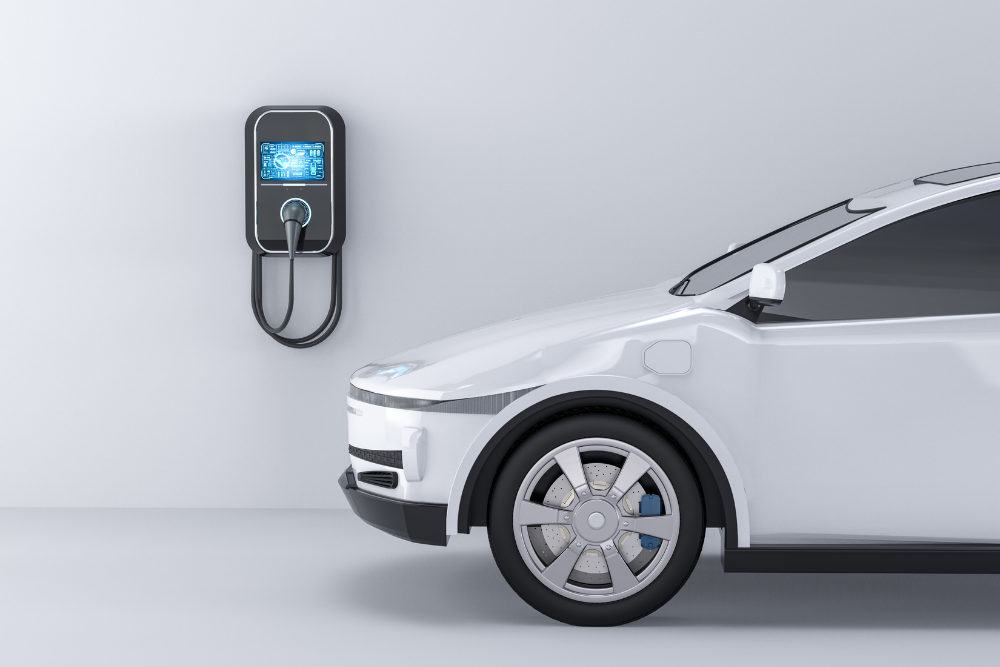
With the upsurge in electric vehicle demand over the past few years, the pressure for manufacturers in the automotive sector to stay ahead of the curve and develop solutions that are compatible with the latest EV technology and models becomes more apparent. There aren’t many other industries that have evolved so rapidly in recent time, and the EV market is showing no signs of slowing down.
Battery technology is at the heart of EV development, with research taking place all over the world to find alternatives and improvements for lithium-ion battery performance. As manufacturers of specialist insulation solutions for EV batteries, we appreciate first-hand how the sector works and have been able to collaborate with other experts to gain a full understanding of what’s required to stay competitive. We wanted to use this opportunity to look ahead at 2024, to explore the EV battery innovations worth keeping an eye out for.
Solid-State Batteries
Using solid-state technology has been theorised to produce EV batteries with greater energy density and capacity. There are various research teams and companies that are developing these batteries using this technology. One example is US-based QuantumScape has grabbed headlines with its innovative semi-solid state battery technology, aiming to revolutionise EVs with increased range and faster charging.
Their unique “anode-free” design utilises lithium metal alongside a ceramic separator and liquid electrolyte, promising a fast 15-minute charge to 80% capacity. Late 2022 saw prototype deliveries to auto giant Volkswagen, with initial tests exceeding expectations. 2024 will be a crucial year for QuantumScape as they aim to translate lab successes into commercially viable production. Partnering with established automakers like Volkswagen is a positive step, but scaling up manufacturing and ensuring cost-effectiveness remain substantial challenges.
Sodium-Ion Batteries
Sodium-ion batteries are an alternative to lithium-ion batteries for EVs, offering several advantages over their rivals including sodium’s greater abundance when compared to lithium and cobalt. A recent article from Mining.com explores how they could be a genuine sustainable solution thanks to their resource-efficiency, citing a study by researchers at Sweden’s Chalmers University of Technology who have suggested that sodium-ion batteries hold significant promise.
Sodium-ion batteries do however have some way to go, as they’re currently used for stationary energy storage in grids, but with more development, it is hoped they could also be used in EVs. Furthermore, the energy density of sodium-ion batteries is lower than lithium-ion batteries, meaning they may not be suitable for all applications. The bottom line however is that sodium-ion batteries do offer exciting possibilities for future EV applications.
Lithium-Sulphur Batteries
With the integration of sulphur, lithium-sulphur batteries may have the potential to take EV battery innovations to the next level in regards to performance. A research team from Monash University in Australia have made a significant discovery for battery technology that could be a potential game-changer. In Q4 2023, they released an article about this new battery design, which has a nanoporous polymer-coated lithium foil anode, and boasts 5x the energy capacity of a standard lithium-ion battery at half the cost.
A major obstacle with lithium-sulphur batteries has been the interaction between the lithium anode and sulphur cathode, leading to dendrite formation and early battery failure. However, the researchers from Monash University claim their anode solves this problem by blocking harmful chemicals and stabilising lithium. While promising, further research and development are needed before this technology can be widely adopted. Some crucial aspects to consider include lack of real-world testing, cost effectiveness and safety regulations.
Silicon Anodes
Panasonic’s plans to improve and expand its battery production have the potential to significantly boost EV adoption and accelerate the transition to clean energy. They’ve recently published an article outlining their aims for a new and improved version of its 2170 battery cells used in Tesla Model 3 and Model Y. These cells will have higher energy density, which could lead to longer range and lower costs for EVs.
They are partnering with California-based Sila to use nano-composite silicon anode material in its batteries. This technology has the potential to significantly improve battery range and recharge time, with the silica anode material found to store 10x more charge than graphite anode traditionally used in lithium-ion batteries. Sila’s flagship solution, Titan Silicon, offers an impressive 20% improvement in energy density compared to the leading cells in the industry. Additionally, it is projected to achieve a 40% increase in future versions.
Battery Passports
The responsibility of EV battery production is at the forefront of sustainability goals and objectives. Creating a truly circular economy and reducing waste has been identified as paramount for meeting the EV demand without compromising on the environment. The battery passport is a framework conceptualised by the Global Battery Alliance, acting to provide complete transparency to a battery’s production journey and lifespan. All materials involved are recorded, as well as shipping, usage and condition.
They’re expected to play a big role in 2024, namely in facilitating the recycling process by providing detailed information about the battery’s composition and previous usage. This information can help recycling facilities optimise their processes and ensure maximum recovery of valuable materials. There are challenges associated with these digital battery passports, however they are recognised as a vital component of the battery technology industry. In fact, by 2027 all EVs entering the EU will require a battery passport.
EV Battery Insulation: Summary
These are some of the most recent studies and articles that have been released, and each one poses an exciting potential for where the EV battery industry is heading. One thing is for certain, lithium-ion battery technology as we now know won’t be the final piece of the puzzle, as new EV battery innovations or alternatives will continue to provide new opportunities and possibilities. If you’d like to find out more about the work we do with EV batteries, specifically our insulating solutions, get in touch here.
